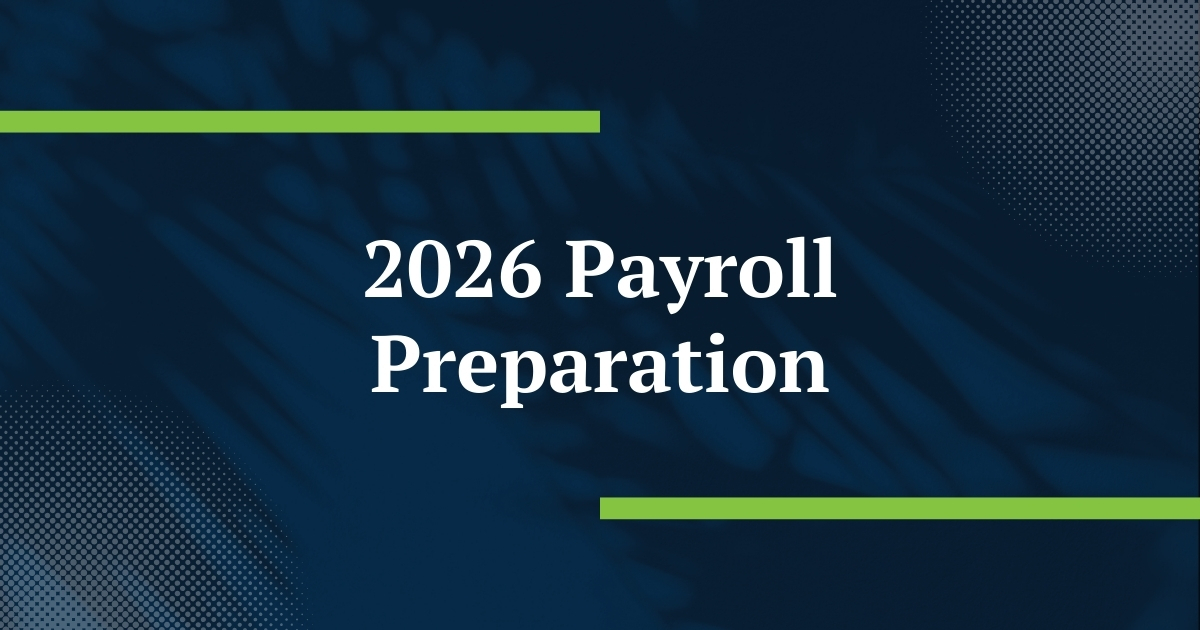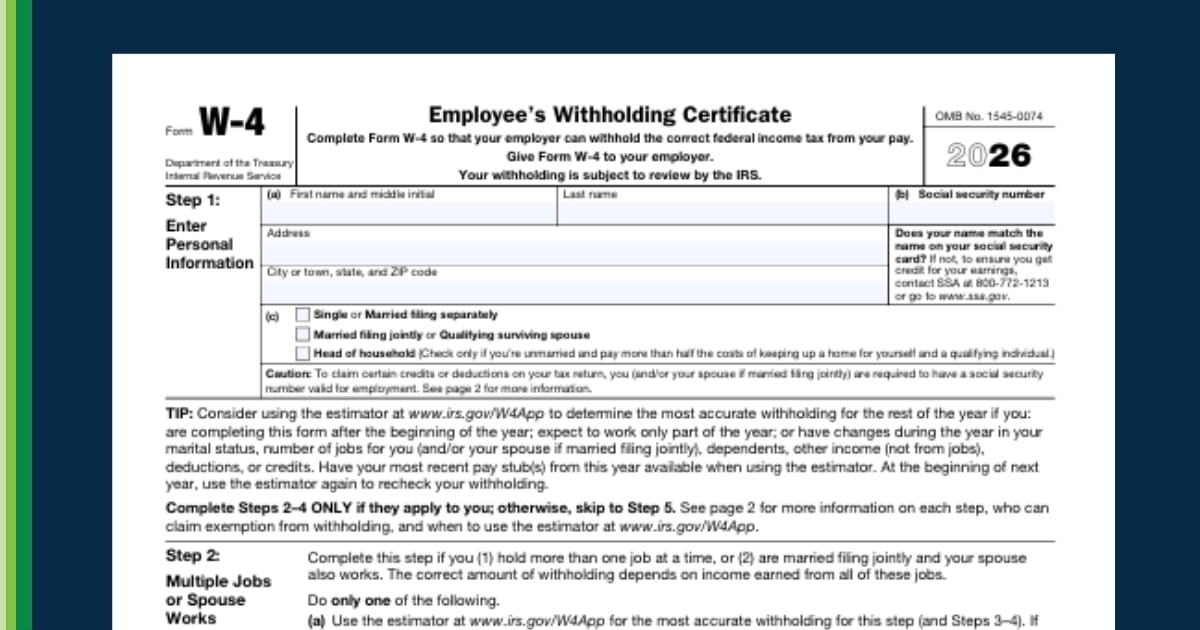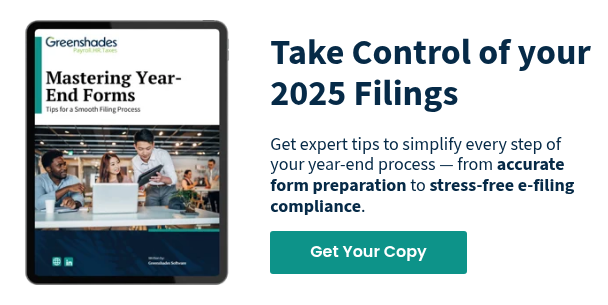With 2025 year-end on the horizon, now is the time to organize your payroll and tax reporting. Getting ahead of the process helps you avoid last-minute stress and ensures your business stays compliant when filing W-2 and 1099 forms.
Use this three-step checklist to cover the essentials for year-end reporting. You’ll be ready to e-file with confidence and start the new year strong.
Note: This information is for informational purposes only and does not constitute formal tax, legal, or compliance advice. Always consult with qualified tax advisors, legal counsel, and your organization’s internal teams for guidance specific to your situation. Additional regulations may apply. For the most accurate and up-to-date information, refer to official government resources and regulatory agencies.
1: Set Internal Business Processes
Start by defining your internal year-end processes. Align your team and tools now to prevent confusion down the road. Ask your year-end team these key questions:
How will you be completing your W-2 and 1099 forms?
Decide how you’ll process your forms. You can complete them manually, use your accounting software, rely on dedicated tax prep software, or use pre-printed W-2 forms. Choose the method that fits your business best.
How will you distribute your W-2 and 1099 forms?
Each form requires copies for the IRS, SSA, and your workers. Decide how you’ll deliver forms to each party to keep distribution efficient.
As of 2025, most businesses are required to electronically file year-end forms.
- If you’re submitting 10 or more total information returns (W-2s, 1099s, and similar forms combined), you must e-file through approved systems such as the SSA’s Business Services Online (BSO) or the IRS Information Returns Intake System (IRIS).
- Even if you have fewer than 10 forms, e-filing is still the fastest and most reliable choice.
Distribute forms to employees based on their preferences. By default, employees must receive a paper copy. However, if your company uses a self-service portal and has provided the option for employees to receive their forms electronically, you may do so with the employee's explicit permission.
What are the due dates for each form?
Each form type has its own deadline. Make sure your team knows each due date to stay on track with distribution.
W-2 Deadlines
-
January 31: W-2 Forms must be distributed to the SSA (Social Security Agency) and to each employee.
1099 Deadlines
- January 31: Generally speaking, 1099 Forms are due to the recipient at this point.
- March 31: Copies must be sent to the IRS electronically.
Form 1099-NEC must be filed with the IRS and all recipients by January 31. Other 1099s may have individual deadlines that you can confirm on the IRS website.
Note: In 2026, some deadlines have shifted because due dates fall on weekends or holidays. Be sure to double-check all form deadlines.
2: Prepare Data for Form Completion
Accurate data is the backbone of a smooth year-end. Taking time to confirm worker details and payment information upfront saves time (and potential correction headaches) later.
Ensure you Have Correctly Classified Workers
Before you distribute or file forms, ensure your workers are properly classified. Proper classification is essential to comply with tax and labor laws. The IRS has a comprehensive guide on how to do this correctly.
Confirm you Have Proper Documentation
Gather all required information from employees and independent contractors to complete W-2 and 1099 forms accurately.
- For employees: Keep a W-4 form on file for each person. This form includes their personal details and federal tax withholding information.
- For independent contractors: Make sure you have a current W-9 form with their contact and taxpayer ID information. Collect all payment records from their contract period.
Gather Essential Payroll Information
Double-check that your company and worker data is complete and accurate. Make sure your team has the following information ready.
Employer Information
- Employer ID number (EIN)
- Business name, address, and zip code
- State tax ID number for the business
Employee/Contractor Information:
- Full name, address, and Social Security Number (SSN) or Taxpayer Identification Number (TIN)
- Total amount paid to the employee/contractor, including wages, tips, and other compensation
- Amount of federal income tax withheld
- Social Security wages (refer to SSA Fact Sheet for guidance)
- Medicare wages
- Employee tips paid
- Benefits provided
- State-specific information, such as wages and tips paid and whether state income tax was withheld
- Local wages, tips, and local income tax information
E-File Accuracy Tip: Run a TIN/SSN verification before e-filing to catch mismatches early — it’s one of the most common reasons forms get rejected.
3: File Forms 1099 and W-2
Once your data is ready, file your forms. E-filing gets your forms delivered faster, processed accurately, and provides digital confirmation for your records.
Where to E-File
- W-2 Forms: File through the SSA Business Services Online (BSO) portal.
- 1099 Forms: File using the IRS Information Returns Intake System (IRIS).
With Greenshades, these steps are automated. The platform generates your forms, e-files with the SSA and IRS, and provides confirmation receipts and validation checks to help prevent errors before you submit.
Distribute and Save Copies
- Provide recipients with their copies (paper or electronic).
- Keep copies of all filed forms and electronic confirmations for at least four years. This protects your business in case of audit or corrections.
Reminder: Don’t forget to review any state-specific reporting rules. Some states require separate filings or additional year-end forms.
Simplify 2025 Year-End Filing with Greenshades
From data validation to automatic e-filing, Greenshades streamlines every step of the W-2 and 1099 process — no spreadsheets or manual uploads required.
✅ Automated form generation and e-filing
✅ Built-in compliance checks
✅ Secure employee self-service portal
✅ Comprehensive year-end resources





























